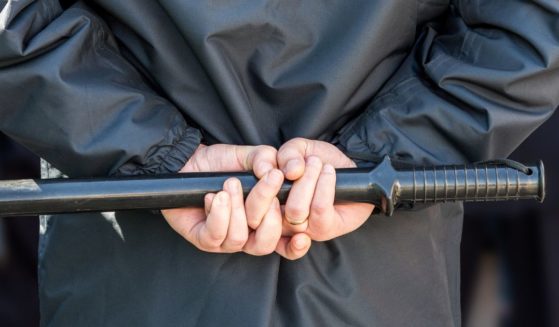M-44 Cyanide Bomb Program Still Ongoing But Could Soon End - These Deadly Devices Are Still Hidden Across the US
More than six years after a little-known government initiative resulted in the poisoning of a 14-year-old boy and the death of the boy’s 3-year-old dog, congressional Democrats have reintroduced legislation that would ban the lethal practice responsible for the poisonings.
In a story published on Thursday, Ryan Devereaux of The Intercept chronicled one Idaho family’s quest for belated justice.
The story began on March 16, 2017, when 14-year-old Canyon Mansfield and his 3-year-old yellow lab, Kasey, accidentally stumbled upon an M-44 cyanide bomb.
Canyon and Kasey had not ventured onto a World War One battlefield. They had hiked up a familiar hill only 300 yards from the family’s home.
Canyon noticed a “sprinkler-like object protruding from the ground” and then “ran a finger along the device.” At the boy’s light touch, the object spewed deadly sodium cyanide. Kasey died within minutes, and Canyon experienced dreadful symptoms that plagued him for years.
USDA must rethink cyanide bombs that injured boy, killed pets, lawmaker says https://t.co/nX713SqiC5 @CristinaCorbin pic.twitter.com/WE2sk6KmNd
— Fox News (@FoxNews) March 21, 2017
Dr. Mark Mansfield, a family doctor and Canyon’s father, sought answers and eventually discovered the culprit. He learned that the U.S. government had planted the bomb.
The Department of Agriculture’s Wildlife Services, “an under-the-radar federal agency” empowered to “protect the livestock industry’s bottom line,” regularly deploys M-44 cyanide bombs to kill off predators.
Mansfield sued Wildlife Services and spearheaded a campaign to eradicate the deadly devices. H.R. 4951, “Canyon’s Law,” introduced in 2019, would ban the use of M-44 cyanide bombs on public land.
Unfortunately, Mansfield and his allies, including wildlife advocates, discovered the power of Washington, D.C.’s agriculture lobby. Many private ranchers see value in the M-44, which eliminates wild predators and thus protects their property from destruction.
In Congress, “Canyon’s Law” went nowhere.
The Department of the Interior, however, has come to the Mansfields’ aid. During a legislative hearing on July 21, 2022, the DOI submitted a statement declaring its support for an M-44 ban.
In June, Democratic Reps. Jared Huffman of California and Steve Cohen of Tennessee reintroduced “Canyon’s Law.” A coalition of wildlife advocacy groups followed with a petition urging the DOI to ban M-44s.
The quest to rid the U.S. of deadly M-44 cyanide bombs might finally have momentum.
Still, the story of Canyon Mansfield, his dog Casey, and the stalled “Canyon’s Law” highlights the insidious nature of relationships between government and private wealth.
Too often, agencies such as Wildlife Services function as an enforcement arm of big business.
Congress’ failure to enact “Canyon’s Law” leads to only one conclusion. M-44 cyanide bombs serve ranchers’ interests by protecting livestock and thus profits. When those bombs injure people and kill pets, ranchers and their government agents might feel sorry, but they do not feel sorry enough to abandon the practice and risk losing money.
Americans’ trust in government has diminished in recent years. These kinds of stories will not revive that trust anytime soon.
Truth and Accuracy
We are committed to truth and accuracy in all of our journalism. Read our editorial standards.
Advertise with The Western Journal and reach millions of highly engaged readers, while supporting our work. Advertise Today.












